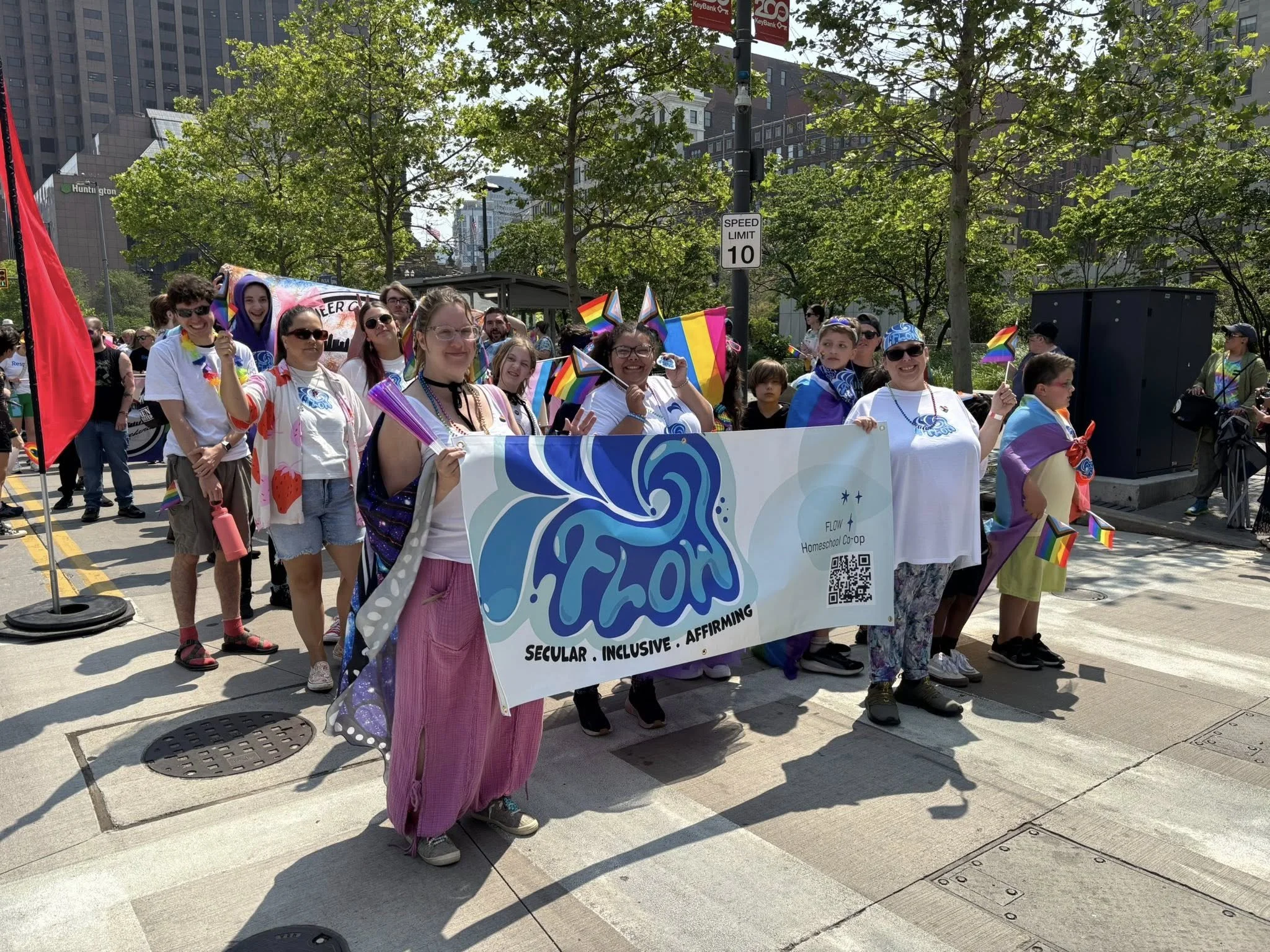Principles of Conduct:
As a member of FLOW, I promise to help create a safe space at this
co-op by adopting the following:
Be inclusive - Look for ways to help everyone feel safe, accepted, and part of the community. Be willing to stand up for or ask for help
if anyone is being discriminated against.Be kind - Avoid personal attacks, instead addressing the words or the actions rather than the person. Consider using “I” statements rather than “you” statements.
Be respectful - of opinions, views, and lifestyles which may differ from yours. Treat others the way they would like to be treated. Honor names and pronouns, which are integral to each individual’s identity.
Be open - Make space for different perspectives and points of view, and be ready to learn even when you aren’t expecting to.
Be thoughtful - Consider whether your words or actions might add to or detract from the well-being of the FLOW community.
Be clear - Choose your words carefully to be read as you intend.
Be appropriate - Consider (the age and level of maturity of) your audience, especially in regards to language and content in conversation. Try not to use inappropriate language or content.
Be gracious - Admit mistakes, apologize when appropriate, and give others a safe space to make mistakes as well.
Be encouraging - Recognize that everyone is more likely to grow
and evolve when treated in a positive manner.
Online specific:
In addition to the above, consider that without the aid of facial expression or tone of voice, online communications are more easily misunderstood. Try to read posts, comments, and replies in the most favorable "tone" possible.
Whenever any of us steps over these boundaries (it will happen; we are human), let's point this out kindly and respectfully, and try to take it that way.
Expectations of membership:
Be respectful of church property.
Be on time for classes in which you or your child are participating.
Pay membership and class fees on time.
Attend co-op each week from 10am-2:30pm (in person) or anytime you or your child is participating in a class (online).
Stay up to date with Facebook and Remind communications.
Parent/guardian will attend co-op with children each week.
Help with set-up and clean-up.
Teach, co-teach, and/or assist with classes.
Assume primary responsibility for supervising your children (whether we meet in person or online) and help with the supervision of others as well.
Assume financial responsibility for damage caused by members
of your family.
Adhere to the guiding Principles of Conduct outlined above.
Upholding the expectations listed above defines membership in good standing. In the unlikely event that a member does not, that family may be asked to leave the group. Adhering to these policies contributes to the positive, healthy, and effective learning environment that we strive to maintain at FLOW.
Please review this document carefully with your family. By paying fees and participating as members of FLOW, you are affirming that you know and understand these principles and agree to abide by them in your interactions at FLOW.
OUR COMMITMENT TO COMMUNITY
Mission Statement:
FLOW provides a secular, cooperative community for homeschool families. Members of FLOW are committed to creating meaningful learning and social opportunities within a kind, respectful, and safe environment.
Purpose:
FLOW is a non-profit organization whose purpose is to provide and support the community of learners in which children, tweens, teens, and adults engage in activities that are meaningful, challenging, fun, and connected to real life, interest-based learning.
Statement of Diversity, Equity, and Inclusion:
We believe that growth and learning flourish readily in a diverse and inclusive environment, which welcomes multiple points of view and backgrounds.
The FLOW community is committed to ensuring that all members feel valued and respected, honoring each individual’s identity, including race, ethnicity, religion, sexual/romantic orientation or identity, neurodiversity, physical or mental ability, gender, or other dimensions of diversity.


